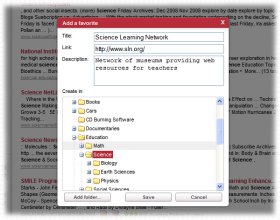|
Education
Web
Viewing 1-1 of 1 total results
that lead to a breakdown of order among nation-states (e.g., conflicts about national interests, ethnicity, and religion; competition for territory or resources; absence of effective means to enforce international law) and describe the consequences of the breakdown of...
1
0
that lead to a breakdown of order among nation-states (e.g., conflicts about national interests, ethnicity, and religion; competition for territory or resources; absence of effective means to enforce international law) and describe the consequences of the breakdown of order. 3. Compare and contrast the powers the Constitution gives to Congress, the President, the Senate Foreign Relations Committee, and the federal judiciary regarding foreign affairs. 4. Evaluate current United States foreign policy issues and
8
0
http://www.nj.gov/education/cccs/2004/s6_ss.pdf#page=8
www.nj.gov/education/cccs/2004/s6_ss.pdf#page=8
nation, state and local communities. In addition, students must also be prepared to serve as global citizens; that is, students must be aware that the United States has a significant impact on the rest <span class="highlight">of</span> the world, and conversely, the rest <span class="highlight">of</span> the world impacts the United States. Technological advances bring the world to our doorstep. <span class="highlight">International</span> education enables students to broaden their understanding <span class="highlight">of</span> global issues that impact their life as Americans. The study <span class="highlight">of</span> politics, government, and society should
11
0
http://www.nj.gov/education/cccs/2004/s6_ss.pdf#page=11
www.nj.gov/education/cccs/2004/s6_ss.pdf#page=11
that lead to a breakdown <span class="highlight">of</span> order among nation-states (e.g., conflicts about national interests, ethnicity, and religion; competition for territory or resources; absence <span class="highlight">of</span> effective means to enforce <span class="highlight">international</span> law) and describe the consequences <span class="highlight">of</span> the breakdown <span class="highlight">of</span> order. 3. Compare and contrast the powers the Constitution gives to Congress, the President, the Senate Foreign Relations Committee, and the federal judiciary regarding foreign <span class="highlight">affairs</span>. 4. Evaluate current United States foreign policy issues and
30
0
http://www.nj.gov/education/cccs/2004/s6_ss.pdf#page=30
www.nj.gov/education/cccs/2004/s6_ss.pdf#page=30
6.4.12 L. Contemporary America (1968-present) 1. Examine the administration <span class="highlight">of</span> American presidents, beginning with President Richard M. Nixon, as a means to analyze political and economic issues in contemporary America, including domestic policy and <span class="highlight">international</span> <span class="highlight">affairs</span>. 2. Investigate the economic and social patterns in contemporary New Jersey, including shifts in immigration patterns, urban decline and renewal, important New Jersey Supreme Court rulings (e.g., Mount Laurel decision), and the issue <span class="highlight">of</span>
© Copyright Vantage Labs LLC All rights reserved.
About iSEEK Education
|
Privacy Policy
|
Contact Us
|
FAQ
Total time to process: 4788ms - Cache load: 0ms.
|
